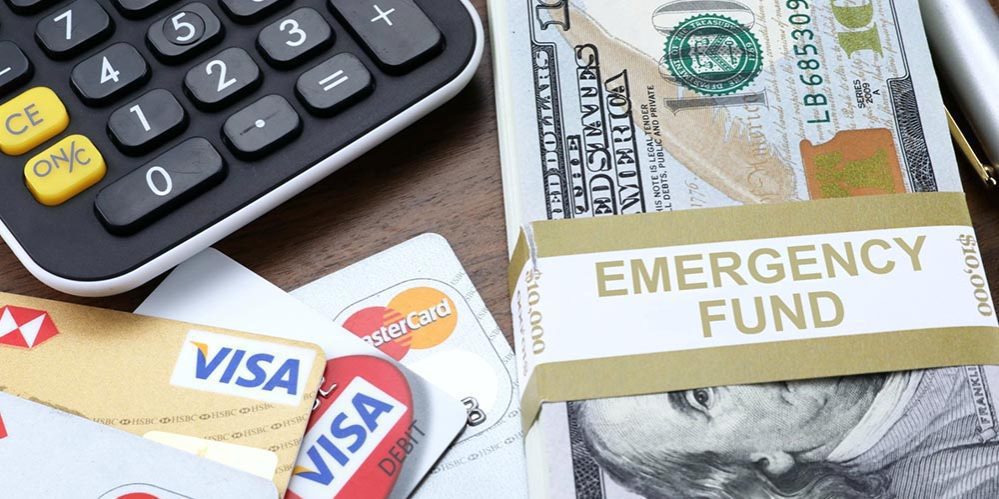So you’ve decided to take the plunge and start a side hustle. Congratulations! A little extra income is always a good thing, and there are plenty of reasons to love having a side hustle. But have you stopped to consider that your little sideline may be illegal? Depending on your country of residence, working a second job may not be as legal as you think. In this article, we’ll answer the question of whether or not it’s legal to have a side hustle in four different countries: the United States, Canada, the United Kingdom and Australia.
In the US having a side hustle is generally legal. However, there are a few exceptions. If you’re employed full-time, your company may have rules about working another job. It’s always best to check with your HR department before taking on any additional work. Additionally, if you’re receiving unemployment benefits, you may not be able to legally earn income from a side hustle.
Another consideration is if you’re planning to work for another employer or self-employed. You’ll need to make sure you have the proper permits and licenses for your state or local area. For example, in New York City, you need a separate license to be a dog walker. Depending on the type of work you’re doing, you may also need to acquire business insurance. But if you inform yourself about whether you need a business license and insurance upfront and report side hustles in your taxes, there’s no reason you can’t legally have a side hustle in the United States.
In Canada, the laws around side hustles are similar to those in the United States. There may be rules about working another job if you’re employed full-time, so it’s always best to check with your employer first. You also need to make sure you have the proper permits and licenses for the type of work you’ll be doing, and you may need business insurance. However, as long as you inform yourself about the laws and regulations surrounding side hustles and report your earnings on your taxes, there’s no reason you can’t legally have a side hustle in Canada.
The laws around side hustles in the United Kingdom are a bit more restrictive than in the United States or Canada. If you’re employed full-time, you’ll need to get permission from your employer before taking on any additional work. Additionally, there are restrictions on the types of jobs you can do as a side hustle. For example, you can’t take on work that’s in the same field as your primary job or that would conflict with your employer’s interests. Additionally, you’ll need to make sure you have the proper permits and licenses for the type of work you’re doing and report your earnings from your side hustle on your taxes. When you’ll be working self-employed, register with HMRC as a sole trader and you can start doing business right away. There aren’t really many legal obligations.
Australia has a similar legal framework to the United Kingdom when it comes to side hustles. If you already work full-time, your employer needs to know about your interest of getting a second job. To get started you need to get an Australian Business Number (ABN). Similar to the system in the UK, this number classifies you as a sole trader and sets you up to get started in commercial activity.
What is considered a side hustle
A side hustle is any supplemental income-generating endeavor that you undertake in addition to your primary job. While it can sometimes be hard to define what qualifies as a side hustle, there are a few key characteristics that are generally agreed upon. First and foremost, a side hustle should be something that you are passionate about. It should also be relatively low-cost to get started and have the potential to generate some extra income. Finally, it should ideally be something that you can do on your own time, without interfering with your primary job.
While the definition of a side hustle may be somewhat nebulous, there are plenty of examples of successful side hustles. Perhaps the most famous example is that of Mark Zuckerberg, who started Facebook as a side hustle while he was still attending Harvard. Others have launched successful businesses by selling handcrafted goods on sites like Etsy or writing articles for publications like Inc. magazine. Even attorneys can get in on the action by offering their services on a freelance basis.
So whether you’re looking to make some extra money or simply pursue a passion project, a side hustle may be right for you. With a little bit of creativity and elbow grease, you could find yourself well on your way to achieving your goals.
Benefits of having a side hustle
For many people, the idea of having a side hustle is incredibly appealing. After all, who wouldn’t want to make a little extra money on the side? But there are actually quite a few benefits to having a side hustle, beyond just the financial ones. Here are just a few of the reasons why you should consider starting a side hustle:
1. It can help you develop new skills.
2. It can give you a sense of empowerment and accomplishment.
3. It can help you network and meet new people.
4. It can provide you with an outlet for creativity.
5. It can help you stay motivated and organized.
6. It can help you save money.
7. It can give you a sense of pride and satisfaction.
How to find a side hustle for you
As the old saying goes, there are many ways to skin a cat. When it comes to finding a side hustle that fits you, the same can be said. However, with a little bit of research and an entrepreneurial mindset, almost anyone can find a great way to make some extra money on the side.
One of the best places to start your search is online. There are countless websites and forums devoted to connecting people with side hustles. If you have a specific skill or interest, there’s likely a side hustle out there for you. For example, if you’re a talented web designer, you could offer your services to small businesses who need help with their website. Or, if you’re an experienced photographer, you could start a freelance photography business.
To get started, think about what you love to do most in your life. Make a list of your skills and interests, and then do some research to see if there are any side hustles that could be a good fit for you. Think about what other people, families, businesses or organizations might need your skills and what you can bring to the table. You’ll be surprised about what this mindset can uncover.
Of course, you don’t have to limit your search to online resources. Sometimes the best way to find a great side hustle is simply to ask around. Talk to your friends, family and neighbors about what they do to make extra money. Chances are, someone you know has a great side hustle that you could get involved in.
Tips for staying organized and motivated when working a side hustle
When you’re working a full-time job and running a side hustle, it can be tough to stay organized and motivated. Here are a few tips to help you make the most of your time:
1. Set realistic goals for your side hustle. If you’re only setting unrealistic goals, you’re more likely to get frustrated and give up.
2. Create a schedule and stick to it. Having a set schedule will help you stay on track and avoid burnout.
3. Delegate tasks to other people. If you’re trying to do everything yourself, you’re going to get overwhelmed quickly. Delegate tasks to family members, or friends, or even hire someone to help you out.
4. Take breaks when you need them. It’s important to take some time for yourself, even if it’s just a few minutes each day. Take a walk, read a book, or just step away from your work to clear your head.
5. Reward yourself for your accomplishments. When you hit milestones, give yourself a pat on the back with a treat or something else that makes you feel good. This will help keep you motivated to keep going.
6. Set your own pace. It doesn’t make sense to reach for the starts on day 1. Stay calm and work the way you want to, at the pace that is comfortable for you.
By following these tips, you can make sure that your side hustle is something that you enjoy and that is sustainable in the long run. Remember, a side hustle should be something that complements your life, not takes away from it. So make sure to find a balance that works for you, and stick with it.
Pitfalls to avoid when working a side hustle
When pursuing a side hustle, it’s important to be aware of the potential pitfalls that can trip you up. One common mistake is failing to treat your side hustle like a real business. This means keeping accurate records, maintaining a professional attitude, and being organized and disciplined in your work.
Another mistake is not protecting your ideas. If you’re working on something innovative, be sure to file for patents or other legal protections. Otherwise, you could find yourself facing copycats who steal your hard-earned ideas.
One area where we always see problems is accounting. Many people don’t realize how important it is to keep track of their expenses and income when running a side hustle. This can lead to big problems down the road, so be sure to consult with an accountant or other financial professional to get started on the right foot.
The elephant in the room is probably taxes. It’s important to remember that, just because your side hustle is small, doesn’t mean you can avoid paying taxes on it. In fact, failing to pay taxes on your side hustle is a surefire way to get in trouble with the IRS. So be sure to set aside some money each month to cover your tax bill.
Finally, don’t forget to comply with any relevant regulations. Depending on your side hustle, you may need to obtain a license or permit. Failing to do so could result in hefty fines or even jail time. By being mindful of these potential pitfalls, you can increase your chances of success with your side hustle.
Legal considerations for working a second job
You’re putting in long hours at your primary job and you’re ready to start earning some extra money by picking up a second job. But before you start job hunting, it’s important to understand the legal implications of working two jobs.
First, check with your primary employer to see if there are any restrictions on holding a second job. Many employers have policies that prohibit employees from working for a competitor or from taking on a job that could conflict with their responsibilities at the company. If you’re unsure about your employer’s policy, check your employee handbook or ask your HR department.
Next, take a look at your contract. If you have an employment contract, it may specifically prohibit you from working a second job or require you to get permission from your employer before taking on additional work. If you don’t have a contract, you’ll likely be considered an at-will employee, which means you can be terminated at any time and for any reason that isn’t illegal. However, even as an at-will employee, you may still be subject to your employer’s policies on holding a second job.
Maybe you should consult with an attorney to understand your state’s laws on working two jobs. Some states have laws that restrict the number of hours you can work in a week or that require employers to provide certain benefits to employees who work more than one job. Understanding the laws in your state will help you avoid any legal trouble down the road.
If you make more than $600 a year from your side hustle, you will receive a Form-1099-MISC from the company you worked for at the end of the year. This is to document how much money you made so that you can report it on your taxes. Be sure to save this form, as you will need it when you file your taxes.
If your side hustle becomes more than that you will need to pay quarterly estimated taxes to the IRS. By now you should have an accountant to help you out with this, but if not, you can find more information on the IRS website.
Paying your taxes is extremely important. Not only is it illegal to not pay your taxes, but if you are caught, you will be subject to interest and penalties. This can quickly add up and leave you in a financial hole that is difficult to get out of.
If your side gig isn’t legally separated from your personal finances, those are at risk. If you get sued or your business is sued, your personal assets could be at risk. This is why it’s important to set up a legal entity for your side hustle, such as an LLC or corporation. Doing so will help protect your personal assets in the event that something goes wrong with your business.
Takeaways
So, is having a side hustle legal? The answer is yes, but it depends on your country of residence and the type of work you do. Be sure to research the laws in your area and comply with any relevant regulations. Failing to do so could result in fines or even jail time. By being mindful of these potential pitfalls, you can increase your chances of success with your side hustle.
Have you ever considered working a side hustle? What is stopping you from starting one today? Let us know in the comments below.























